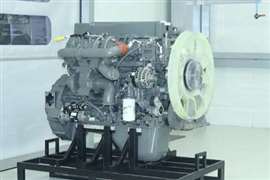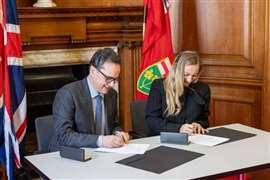EIB in € 168 million loan to Hydrobru
08 December 2010
The European Investment Bank (EIB) has loaned Brussels sewerage municipality Hydrobru € 168 million to finance the upgrade of wastewater treatment systems in the Brussels region.
The EIB loan covers about half of the first phase of investments planned to upgrade the system up to 2014.
In total, the programme to overhaul the region's dilapidated 19th century waste water system will take place over the next 20 years, costing € 1,5 billion.
Brussels' sewerage network currently has about 2000 km of sewers carrying wastewater and stormwater to two treatment plants located to the south and north of Brussels.
Hydrobru said the project would involve around 500 km of the network which was in poor condition and renovation will be staggered at a rate of about 25 km a year.
The first phase of the programme will focus on resolving recurring flooding problems in certain municipalities.
Brussels Minister-Chairman of the government Charles Picqué said the overhaul of the system has been a concern for a number of years.
"The upgrading of sewers will have multiple positive effects for residents - hygiene, prevention of flooding, pollution management, etc. Furthermore, the current state of dilapidation of certain sections results in roads collapsing and the repairs are much costlier than a long-term investment programme," Mr Picqué said.
When complete, the new sewerage system will provide the 19 municipalities of the Brussels region with a modern, efficient network.






